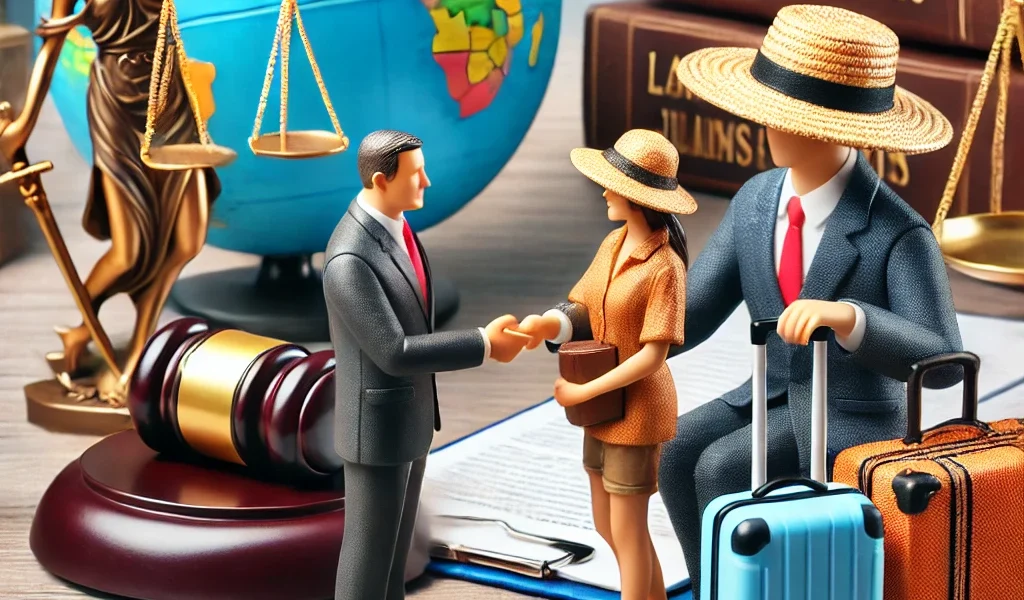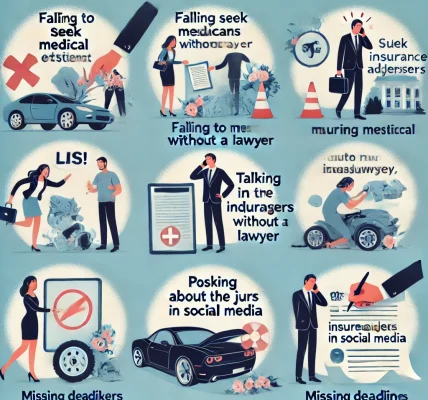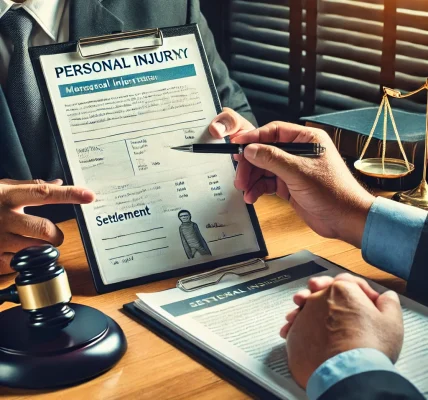Tourists and visitors often travel to new places with the expectation of enjoying their time, but accidents can happen unexpectedly. If you are injured while traveling in a foreign country or another state, you may be entitled to compensation through a personal injury claim. However, filing a claim as a tourist or visitor can be more complex due to different laws, jurisdictional issues, and insurance complications.
This article will guide you through the process of personal injury claims for tourists and visitors, including key legal aspects, challenges, and steps to take to protect your rights.
Understanding Personal Injury Claims for Tourists
A personal injury claim arises when a person suffers harm due to another party’s negligence. Common types of personal injuries that tourists and visitors may experience include:
- Car accidents (rental cars, taxis, rideshares)
- Slip and fall accidents (hotels, restaurants, shopping centers)
- Recreational activity injuries (amusement parks, adventure sports, guided tours)
- Public transportation accidents (buses, trains, airplanes)
- Medical malpractice (if injured due to medical negligence abroad)
Key Legal Aspects of Personal Injury Claims for Tourists
1. Jurisdiction and Applicable Laws
One of the biggest challenges in personal injury cases for tourists is determining which jurisdiction and laws apply. Factors that influence this include:
- Where the accident occurred – The laws of that state or country generally apply.
- Who is responsible for the injury – If it involves a company with a presence in multiple countries, different laws may come into play.
- Your home country’s legal agreements – Some nations have agreements that allow injured tourists to seek legal recourse in their home country.
2. Statute of Limitations
The statute of limitations refers to the deadline for filing a personal injury claim. This varies by location. For example:
- In the United States, most states have a 2-4 year statute of limitations for personal injury claims.
- In Europe, statutes vary by country (e.g., the UK allows 3 years, while Spain allows only 1 year for some claims).
- In Canada, the limitation period depends on the province (typically 2 years).
It is crucial to consult a personal injury lawyer to understand the specific deadline applicable to your case.
3. Liability and Negligence
To win a personal injury claim, you must prove the following:
- Duty of care – The responsible party had a duty to ensure safety.
- Breach of duty – They failed to uphold this duty (e.g., a hotel failed to fix a broken stairway).
- Causation – Their negligence directly caused your injury.
- Damages – You suffered financial or physical harm as a result.
Steps to Take After an Injury as a Tourist
If you suffer an injury while traveling, taking the right steps can strengthen your case:
1. Seek Immediate Medical Attention
Your health should be the top priority. Seek medical help and ensure your injuries are documented. Keep copies of medical records, prescriptions, and bills, as they serve as crucial evidence.
2. Report the Incident
- Car accidents – Contact local law enforcement and obtain a police report.
- Hotel, restaurant, or public place injuries – Report the injury to management and request a written incident report.
- Tourist attractions or guided tours – Notify the operator or venue immediately.
3. Gather Evidence
- Take photos or videos of the accident scene, your injuries, and any hazardous conditions.
- Obtain contact information of witnesses who can support your claim.
- Keep a record of expenses, including medical costs, travel disruptions, and lost wages.
4. Contact a Local Personal Injury Lawyer
Hiring a lawyer who specializes in personal injury law in the area where the accident occurred is essential. They can:
- Explain your legal options.
- Handle negotiations with insurance companies.
- File a lawsuit if necessary.
5. Notify Your Travel Insurance Provider
If you have travel insurance, report the incident and follow their claim procedure. Some policies cover medical expenses, trip cancellations, and liability coverage for personal injury claims.
Challenges Tourists Face in Personal Injury Claims
Tourists and visitors may encounter unique obstacles when filing personal injury claims:
1. Language Barriers
If the accident occurs in a foreign country, language differences can make legal and medical procedures difficult. Consider hiring an interpreter or seeking legal assistance from professionals who speak your language.
2. Returning Home Before the Case is Resolved
Many tourists leave the country before their case is finalized. To address this:
- Appoint a local attorney to represent you.
- Provide remote depositions or testimonies if required.
3. Dealing with International Insurance Policies
- If the at-fault party has local insurance, your lawyer will handle negotiations with their insurer.
- If you have travel or health insurance, check what expenses are covered and initiate a claim accordingly.
Can You File a Claim from Your Home Country?
In some cases, you may be able to file a personal injury lawsuit after returning home. This depends on:
- Where the defendant is based – If they have a presence in your home country, a lawsuit might be possible there.
- International agreements – Some countries have reciprocal agreements allowing cross-border legal action.
- Choice of law clauses – Some businesses (e.g., hotels, tour companies) include legal clauses specifying where disputes must be resolved.
Compensation You May Be Entitled To
A successful personal injury claim may result in compensation for:
- Medical expenses (hospital bills, therapy, medication)
- Lost income (missed work due to injury)
- Pain and suffering (physical pain, emotional distress)
- Travel expenses (costs related to medical care or returning home early)
Conclusion
Being injured while traveling can be stressful, but knowing your legal rights can help you seek fair compensation. If you are injured as a tourist or visitor:
- Seek medical care immediately.
- Document everything and report the accident.
- Contact a local personal injury lawyer for guidance.
- Check if your travel insurance covers medical or legal costs.
Taking the right steps after an injury can make a significant difference in your ability to recover damages. When in doubt, always consult a legal professional to navigate the complexities of cross-border personal injury claims.




